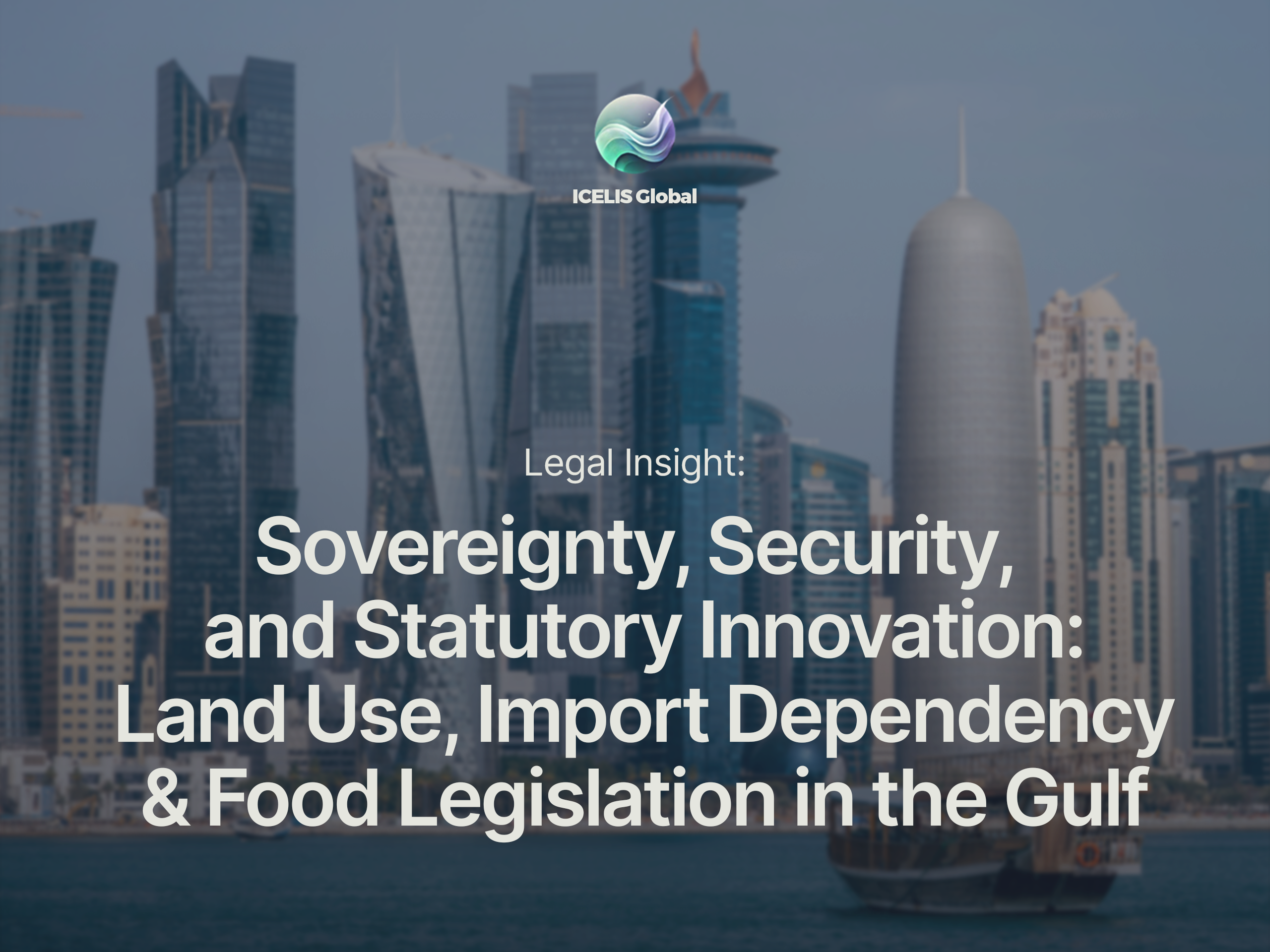Introduction: The Legal Foundations of Food Security
Food security is increasingly recognized not just as a developmental goal but as a matter of national security in the Gulf Cooperation Council (GCC). With limited arable land, high water scarcity, and heavy reliance on imports, countries like Qatar are leveraging legal frameworks to strengthen food resilience. This article explores how statutory innovation in land use and import policy is reshaping food security strategies in the region.
Redefining Land Use in Arid Zones
Traditional land use laws in the Gulf were ill-equipped to handle the dual pressures of urbanization and food production. Recent legislative reforms in Qatar and the UAE have begun to prioritize agri-tech zones, protected farmland, and incentives for vertical and hydroponic farming. Qatar, through the Qatar National Food Security Strategy (QNFSS), has reclassified land zones to facilitate climate-resilient agriculture and protect strategic agricultural reserves.
Import Dependency and Regulatory Shifts
It’s worth noting that an estimated 85% of food consumed in GCC countries is imported, leaving them vulnerable to global supply shocks. Legal responses have included the revision of import licensing laws, diversification mandates, and the creation of food security reserves governed by clear statutory mandates. For instance, Qatar has enacted emergency laws to streamline food import processes during crises and ensure regulatory continuity.
Strengthening Legal Institutions and Compliance
Food security strategies in the GCC are now supported by dedicated regulatory bodies such as the National Food Security Department in Qatar and similar entities across the region. These bodies are empowered through legislation to monitor compliance, oversee emergency planning, and coordinate across ministries. Moreover, the rise of food-related public-private partnerships has triggered the need for robust legal contracts and dispute resolution mechanisms.
Conclusion: Legislating Resilience
In the GCC, food security is no longer just an economic or agricultural issue—it is a legal one. Qatar and its neighbors are showing that statutory innovation can be a cornerstone of sovereign food resilience. The future of food in the Gulf will depend on how swiftly and effectively legal systems can adapt to the demands of a rapidly changing global and environmental landscape.
